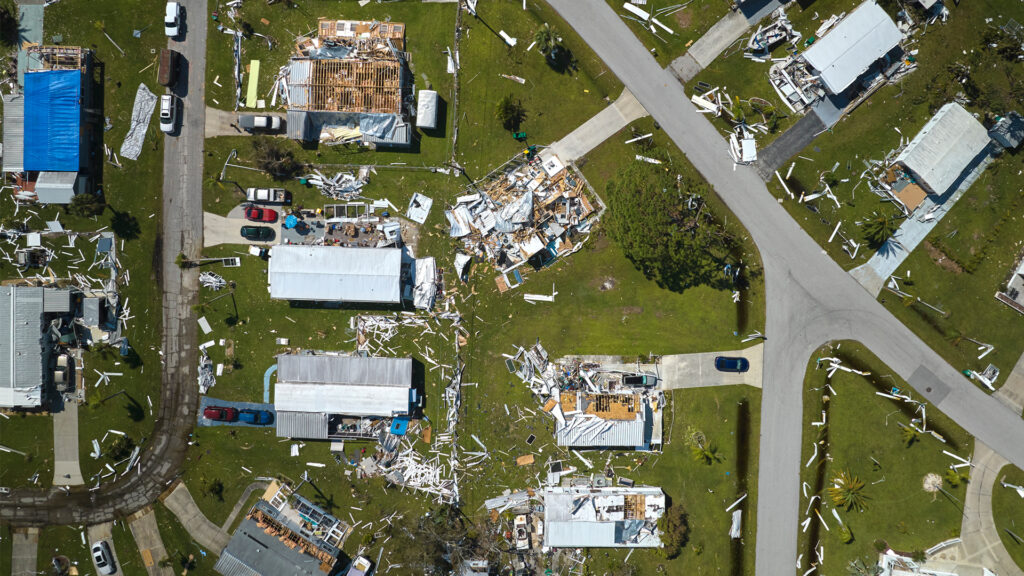By Mary Anna Mancuso, RepublicEn.org
Florida’s insurance crisis has taken the national stage. Earlier this month, the Senate Budget Committee heard testimony from experts and those directly affected on how much climate change is to blame for Florida’s insurance crisis.
For homeowners in other parts of the country, the plight of Florida homeowners, who are paying the highest premiums in the country, and their insurance woes (many of the state’s insurance companies are more fragile than they appear) might seem irrelevant. However, the struggles Floridians are experiencing could be indicative of things to come for other homeowners throughout the country.
Senators on the committee were confronted with the reality that the insurance woes experienced by the Sunshine State are likely in other areas.

“In the coming decades, we must prepare for the possibility of more extensive or more extreme hurricanes, and coastal flooding from Texas to New England,” testified Rade Musulin, an actuary for Finity Consulting. “Florida’s experience is a warning on what we may see in the future in other states.”
There is no question extreme weather events will continue and temperatures will rise. The National Oceanic and Atmospheric Administration (NOAA) has forecasted above average hurricane season, naming 17-25 storms in 2024. In 2021, the Intergovernmental Panel on Climate Change released a report indicating that major hurricanes will become more frequent, floods will increase and wildfires will ignite more easily due to intensifying heatwaves.
Unfortunately, the committee’s ranking GOP member, Sen. Chuck Grassley of Iowa, was not convinced: “The majority hopes that we stop discussing our unchecked deficit spending that has fueled inflation, hammering hard-working Americans and, as I will say shortly, has something to do with driving up the cost of insurance.”
But Republican Sen. Mitt Romney of Utah understands the risks, pointing out that climate change is bigger than an American issue, one that deserves a global effort. He noted, “The idea that somehow we’re going to fix the climate and solve the insurance problem is pie in the sky. It’s avoiding the reality that we can’t fix the climate because it’s a global issue, not an American issue.”
Romney didn’t use this global framing as an excuse for inaction, as some of his GOP colleagues did by bizarrely blaming inflation instead. He implicitly recognizes that American leadership remains vital for catalyzing an international response to curb carbon emissions and help communities adapt to unavoidable impacts.
Although Romney has already announced his retirement from the U.S. Senate, it does not diminish the fact he continues to have the courage and integrity to speak up on important issues, challenging his peers not to ignore them but to come to the table with solutions in hand.

Romney deserves credit for having the integrity to acknowledge and act on the threat of climate change, an issue he has led on since his days as governor of Massachusetts, where he oversaw enactment of the nation’s first statewide climate change bill.
As a traditional conservative, Romney understands that ignoring major risks and kicking the can down the road is the height of irresponsibility. He doesn’t deny basic scientific facts, which are increasingly visible in the form of stronger hurricanes, floods, wildfires and other climate-driven disasters, the very disasters that risk leaving the entire nation’s home insurance industry in peril.
Romney’s truth-telling shouldn’t be remarkable, but it is a respite from the anti-science fervor which continues to grip a portion of the populist wing of the Republican Party. His willingness to speak truth to power shows true political courage and leadership on one of the most pressing issues facing America and humanity.
Other lawmakers should follow Romney’s example. Continuing to marginalize climate change as a fringe issue puts lives, property and the entire U.S. economy at risk. The insurance battles raging in Florida are just the beginning — a preview of cascading disruptions if we fail to act now.
Mary Anna Mancuso is a political strategist and a spokesperson for RepublicEn.org, a growing group of conservatives who care about climate change.
If you are interested in submitting an opinion piece to The Invading Sea, email Editor Nathan Crabbe at ncrabbe@fau.edu. Sign up for The Invading Sea newsletter by visiting here.



